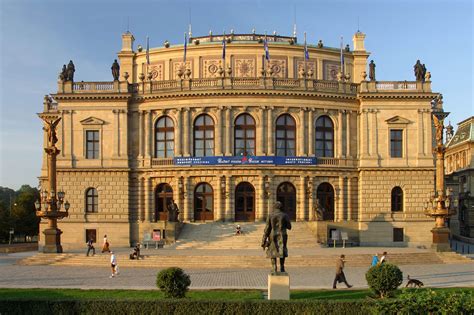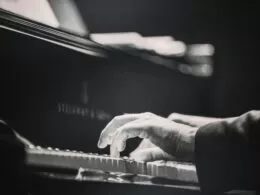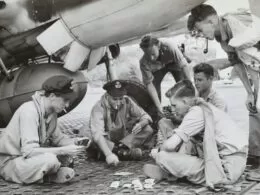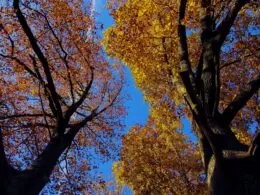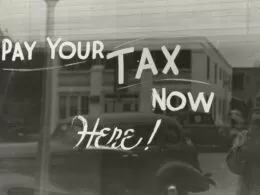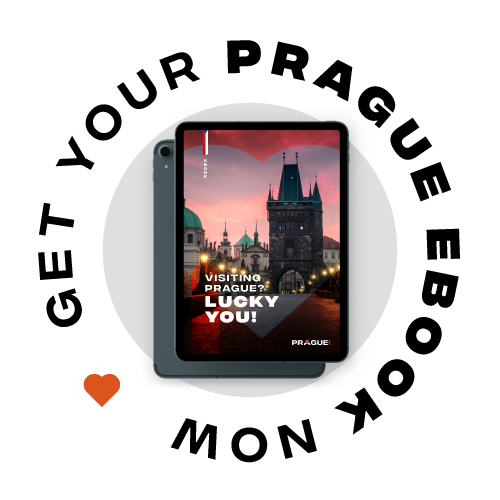Table of contents Show
Czech name: Rudolfinum
Prague is a city with a wealth of non-touristy activities to explore, and one of the most interesting places to visit is the Rudolfinum. It’s hard to imagine any visitor on a Prague sightseeing trip missing the opportunity to take in the beauty of this Neo-Renaissance building.
Location & How to Get To the Prague Rudolfinum
It is a jewel set in the necklace of historical buildings gracing the banks of the Vltava River. Rudolfinum is located at Alšovo nábřeží 12, Prague 1.
Directions: City Public transport Staroměstská station or bus/tram stop:
– underground line A;
– tram nos. 17,18 and 53;
– bus no. 207
Parking: Underground parking on Jan Palacha Square, telephone: +420 222 328 687
Opening Hours & Entry into the Rudolfinum Museum
Opening hours of the Rudolfinum Museum are listed below:
Tues-Wed 10:00AM 6:00PM
Thu-Thu 10:00AM 8:00PM
Fri-Sun 10:00AM -6:00PM
What to Do & What to See at the Rudolfinum
There are so many outstanding halls to visit inside the Rudolfinum. The most important is Dvořák Hall where Dvořák directed the Czech Philharmonic in its very first public concert in January 1896. Anyone who has ever been to a concert there can attest to the outstanding acoustics of one of the oldest concert auditoriums in Europe. The magnificent, high-quality organ is the central element. Each year, the Czech Philharmonic Orchestra is one of the venues of the International Music in May and June.
Rudolfinum concert halls Prague
Concert halls in the Rudolfinum are listed below, as well as what each of the halls are mainly used for.
- Suk Hall, used for smaller chamber concerts, is also located in the Rudolfinum. It has the convenience of having a recording studio attached which can be hired for recording music. It is a beautiful hall with seven huge entrance doors.
- Column Hall houses the stylish, renovated cafeteria where book launches and social gatherings may take place. It too is an attractive, beautifully decorated hall with huge columns and an attractive serving bar.
- On the right side of Dvořák Hall, the elegant Presidential Lounge is found. It is mostly used for press conferences, small social gatherings and presentations.
- Another elegant hall is the Talich Lounge where the visitor can glimpse a view of the Prague Castle. It too is used for social gatherings and press conferences.
- The Ceremony Hall is the main official entrance to the upper-floor gallery. It is the largest of the halls of the Rudolfinum and is used for gala dinners and balls.
- The Prague Spring Music Festival is one of the most significant classical music festivals in Europe. The festival has a rich history, dating back to 1946, and has since then attracted some of the most renowned musicians and orchestras from around the world. The festival’s repertoire covers a wide range of classical music genres, from Baroque to contemporary, and includes operas, symphonies, chamber music, and solo performances. Visitors to the festival can expect to experience exceptional performances in breathtaking historical venues such as the Rudolfinum concert hall.
The Rudolfinum Art Gallery, a non-profit gallery, which opened its doors in 1994, is directed and financed by the Czech Ministry of Culture. Located in the back of the Rudolfinum, the gallery houses its ever-changing collection of contemporary artists’ work.
Private businesses and financial institutions were responsible for the building of the Rudolfinum since it was far too costly for any other social group of the day. These institutions were solely responsible for the planning and financing of a home for the muses of Prague.
Rudolfinum programme
Rudolfinum’s programme includes a list of concert dates and schedules, as well as rentals and recordings. For detailed and accurate information about the concert schedules and time, visit the Rudolfinum website to purchase your ticket as well as schedule your visit.
Rudolfinum Museum
The Museum of Decorative arts, sometimes referred to as the Rudolfinum Museum is in fact a different building which stands directly opposite the Rudolfinum. However, owing to its close proximity to the Rudolfinum, it is sometimes referred to as the Rudolfinum Museum. The Museum of Decorative arts is located in a cultural square which also houses other interesting Prague cultural landmarks.
History of the Prague Rudolfinum
The Rudolfinum is a testament to the brilliance of architect Josef Zítek and his student Josef Schulz. They designed this monument to symbolize the enthusiasm and support of the Czech people for the arts. It took its rightful place along the Vltava River in 1886 where Prague had its beginnings. The government of Czechoslovakia took over the building in 1918 and used it as an assembly hall until 1943. Since then, it has been in constant use as a place for musical concerts.
